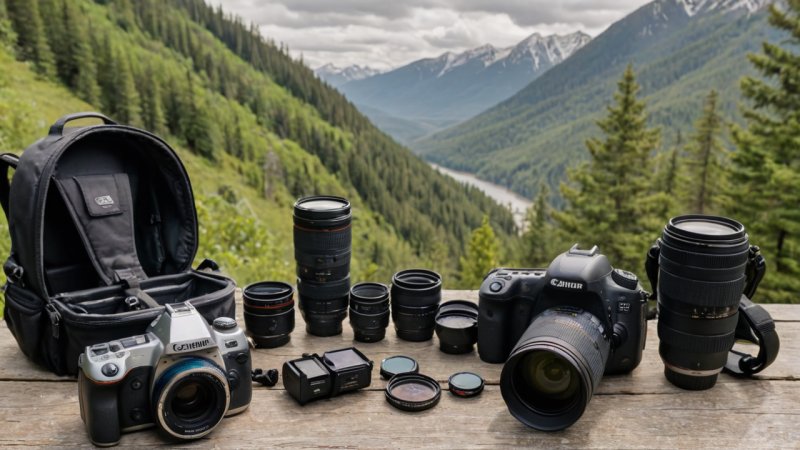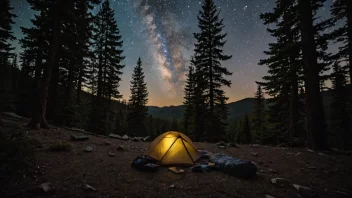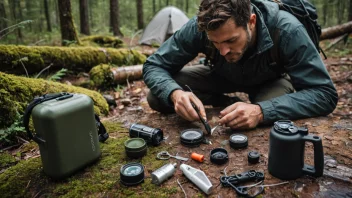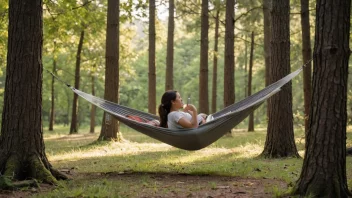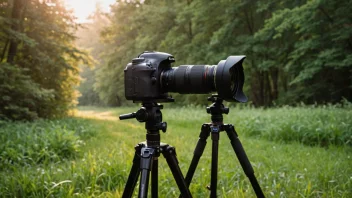For many, outdoor photography is not just a hobby; it's a passion that allows them to capture the beauty of nature while honing their skills. However, stepping into the realm of outdoor photography can be overwhelming, especially for beginners. The right gear can make all the difference in both the quality of your photographs and your overall experience in the field. In this article, we will explore essential outdoor photography gear for beginners, offering insights into what to consider when making your selections.
Understanding Your Photography Needs
Before diving into specific gear recommendations, it's crucial to understand your unique photography needs. Are you primarily interested in landscapes, wildlife, or macro photography? Each genre has different requirements that can influence your gear choices. Additionally, consider your budget and how serious you are about pursuing outdoor photography. Knowing your goals will help you make informed decisions as you build your kit.
Essential Camera Types for Beginners
When it comes to outdoor photography, the type of camera you choose is foundational. Here are some popular options:
DSLR Cameras
Digital Single-Lens Reflex (DSLR) cameras are a popular choice for beginners due to their versatility and image quality. They offer interchangeable lenses, allowing you to adapt to different shooting conditions. Look for models from reputable brands like Canon or Nikon, which often have user-friendly interfaces.
Mirrorless Cameras
Mirrorless cameras are becoming increasingly popular because they are typically lighter and more compact than DSLRs while still delivering excellent image quality. They also feature interchangeable lenses and allow for greater customization. Sony and Fujifilm are two brands known for their quality mirrorless options.
Point-and-Shoot Cameras
If you're looking for something simpler, point-and-shoot cameras can be a good starting point. They are typically more affordable and easier to use, making them perfect for casual outings. However, they may lack the versatility and image quality of DSLRs and mirrorless cameras.
Essential Lenses for Outdoor Photography
The lens you choose can greatly affect your outdoor photography. Here are some essential types of lenses you may consider:
Wide-Angle Lenses
Wide-angle lenses are ideal for capturing expansive landscapes. They can help you fit more of the scene into your frame, making them perfect for outdoor settings. Look for lenses with a focal length of 14mm to 35mm.
Telephoto Lenses
For wildlife photography or distant subjects, a telephoto lens is crucial. These lenses allow you to capture details without disturbing your subjects. A focal length of 70mm to 300mm is typically suitable for beginners.
Macro Lenses
If you’re interested in capturing close-up details of flora and fauna, a macro lens is essential. These lenses enable you to focus on small subjects with incredible detail, making them perfect for outdoor close-ups.
Tripods: A Beginner's Best Friend
A sturdy tripod is an essential piece of equipment for outdoor photography. It helps stabilize your camera, allowing for longer exposure times without the risk of blurriness. When choosing a tripod, consider the following:
- Material: Aluminum tripods are often more affordable, while carbon fiber models are lighter and more durable.
- Weight Capacity: Ensure the tripod can support the weight of your camera and lens combination.
- Height: Look for a tripod that can extend to a comfortable height for your shooting style.
Other Essential Accessories
Aside from your camera and lenses, several accessories can enhance your outdoor photography experience:
Camera Bag
A quality camera bag will help protect your gear from the elements and make it easy to transport. Look for a bag that offers padded compartments and weather resistance.
Filters
Filters can enhance your outdoor photography by reducing glare, improving colors, and adding effects. Consider investing in a polarizing filter for landscapes and a neutral density filter for long exposures.
Extra Batteries and Memory Cards
Outdoor photography often involves long days in the field, so having extra batteries and memory cards is essential. Always carry backups to ensure you don’t miss any moments.
Photography Techniques for Outdoor Beginners
Having the right gear is only part of the equation; understanding how to use it effectively is equally important. Here are some beginner-friendly photography techniques to consider:
Understanding Exposure
Getting familiar with exposure settings (aperture, shutter speed, and ISO) is critical. Experiment with different combinations to see how they affect your images. For instance, a slower shutter speed can create motion blur in water, while a higher aperture can provide greater depth of field.
Composing Your Shots
Good composition can make or break a photograph. Familiarize yourself with the rule of thirds, leading lines, and framing techniques to enhance your images. Don’t hesitate to try different angles and perspectives.
Using Natural Light
Natural light can greatly influence the mood of your photos. Early morning and late afternoon (golden hour) offer the best light for outdoor photography. Try to avoid harsh midday sun, which can create unflattering shadows.
Post-Processing Tips for Beginners
After capturing your images, post-processing can help enhance your photos further. Here are some tips:
Choosing Software
There are numerous photo editing software options available, from free programs like GIMP to more advanced ones like Adobe Lightroom and Photoshop. Choose one that fits your skill level and budget.
Basic Editing Techniques
Focus on basics like cropping, adjusting exposure, and enhancing colors. These simple edits can significantly improve your images without overwhelming you with complex techniques.
Building Your Photography Community
Connecting with fellow photographers can provide inspiration, feedback, and valuable learning opportunities. Here are some ways to build your community:
Join Online Forums and Social Media Groups
Participate in photography forums and social media groups to share your work and learn from others. Platforms like Instagram can also be excellent for connecting with other outdoor photographers.
Attend Workshops and Meetups
Look for local photography workshops or meetups to learn from experienced photographers and network with peers. These events can be invaluable for both skill development and building relationships.
Conclusion
Embarking on your outdoor photography journey can be an exciting and rewarding experience. By investing in the right gear, understanding essential techniques, and connecting with a community of fellow photographers, you'll be well on your way to capturing stunning images of the great outdoors. Remember to embrace the learning process, experiment with different styles, and most importantly, enjoy the beauty of nature through your lens.
